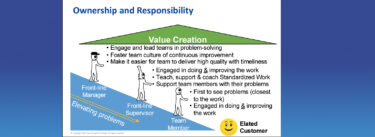(Best-selling author Susan David is the guest on this week’s WLEI podcast. The following article is adapted from her talk.)
In my book Emotional Agility, I talk about how human beings get hooked into habits at work that don’t serve them. These habits might be organizational, or they might be habits with colleagues. And they can also be habits in our minds, our lives and our relationships. And the key to facing this challenge is to acknowledge the role of emotions in the workplace.
Our emotional skills are considered soft skills in business, yet I believe they are fundamental elements of the workplace. We can create the best strategies and plans, but how people feel about the process impacts everything. And the way we deal with this inner world of people drives success. These unseen factors are the cornerstone of empathy, change, innovation, and any strategy.
We can value being connected and engaged and having a meaningful career, for example. But if individuals in a workplace develop an assumption—a feeling—that they’re going to be laid off or that they won’t be allowed to do good work, they will experience an emotional rigidity that prevents them from bringing the best of their selves forward.
Businesses often aspire to qualities that require attention to emotions. For example, you hear organizations today saying: “Let’s all be agile.” You can’t demand that your people become agile, however without recognizing that their psychology can and does impact on how they come to the workplace. You don’t get agility by simply demanding that people behave this way, nor do you become more agile by simply writing it into a job description or developing a strategy around it. Your goal might be to have your staff members be more engaged and connected to customers, but when people experience a lot of stress and a surplus of information, they become more transactional cognitively.
Similarly, organizations seeking to be more innovative must acknowledge the intimate relationship that innovation has with failure, and recognize the need to develop what Amy Edmondson calls psychological safety. Not all change is going to be effective, and it’s impossible to open yourself up fully to change unless you open yourself up fully to potential failure.
It’s essential to value investigation and exploration of challenges as much as achieving hard targets. Systems such as lean are critical to the success of people who are seeking to accomplish shared goals. And yet I believe that work systems must prioritize the reflection and exploration of goals.
Systems must recognize that when things are not working, the way that people feel plays a vital part. Business leaders need to welcome rather than avoid complicated emotions. They can start by helping people label emotions effectively, for example, by learning to ask: what is it that you are feeling about this approach right now? What values do we want to bring to this situation, despite its challenges? This orientation can establish a sense that shared goals and values are key. It can also help create an understanding that work is guided by expansion of being rather than a constriction.
And it’s that expansion that ultimately is going to allow you to be more productive. True effectiveness in the workplace – innovation, change, enhanced customer experience – requires an acknowledgement of how emotions interface with outcomes. It is when they are acknowledged and brought into organizational processes, rather than being sidelined, that the full power of human intellect and possibility is realized. Businesses then, must expand into the emotional world of work, even as it works to systematize work.





